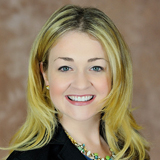On Thursday, April 20 at 9:45 a.m., Douglas T. McGetchin, Ph.D., will present “Non-Violent Power in Action – A Better Way to Build Democracy” at FAU LLS Jupiter. Dr. McGetchin is an Associate Professor of History at Florida Atlantic University where he specializes in the history of the international connections between modern Germany and South Asia. He is the author of “Indology, Indomania, and Orientalism: Ancient India’s Rebirth in Modern Germany” (2009) and several edited volumes (2004, 2014) on German-Indian connections. He is a recipient of a Nehru-Fulbright senior research grant to Kolkata (Calcutta), India and a German Academic Exchange Service (DAAD) grant to Leipzig, Germany, and has won multiple teaching awards.
Dr. McGetchin was kind enough to answer some questions regarding his education, research and travel experience. He has taught for Lifelong Learning in the past and we are excited to welcome him back next week for his one-time lecture.
You received your Ph.D. from the University of California, San Diego. What inspired you to pursue a degree in history?
History has always been an adventure to me, better than fiction because it actually happened. History provides a laboratory of human experience, a series of cases of extraordinary people facing unusual circumstances and being pushed to the edge and sometimes beyond their limits. It is full of so many interesting people. Reading about the past has helped me see how society, politics, and culture all work, and it has given me insight into the present. Great teachers and school environments inspired me as I was growing up in Boston. I had an eighth-grade teacher who not only had us read about Shakespeare and Elizabethan England but also play a naval simulation of the 1588 Spanish Armada. I was one of two students in a history class in a public high school where we read about Richelieu’s France.
You were also a Fulbright-Nehru Senior Research Scholar and spent time in Kolkata (Calcutta), India. Tell us about your experience in India and what you did while there.
In India, I pursued research about Indians struggling against the British during the last few decades of the British Raj, from before the First World War to 1947. I was looking through mostly colonial police files of surveillance on subversive Indian nationalist groups, looking for patterns of resistance to the colonial authorities.
My family, including my wife, two daughters (13, 10) and a son (4) went with me to Kolkata (Calcutta) where we lived for four months amongst people who became as close as family. We were all impressed by the warm hospitality of everyone there and the ability to get along with each other in cramped conditions. It was an adventure of adjustments, but we learned a tremendous amount and gained an appreciation for how much Americans can learn from India, about working together in harmony, caring for the environment, and for each other.
You have several published works and are currently working on a book examining the interconnections between the struggles for social justice, internationalist and anti-imperial politics in Great Britain and Germany, the Indian Independence movement, and the pan-African movement that included the Civil Rights struggle in the United States. What do you hope this book will convey to your readers?
I hope readers will gain an appreciation for the long dialogue between nonviolence and violence among advocates of social struggles. For every Martin Luther King, there was a Malcolm X. For every Gandhi, there was a Surya Sen. Sen was a schoolteacher who, just a few weeks after Gandhi’s 1930 peaceful Salt March, led a guerilla raid against a British outpost in Chittagong, killing the British garrison there and capturing its armory before disappearing into the jungle. Advocates of nonviolence have had to justify their approach and contend with those advocating the use of violent methods, those who say nonviolence is naïve, will take too long, or is not practical.
I also want readers to appreciate the international interconnections between these advocates. Most people know Dr. King drew upon ideas from Gandhi. There is a much wider network of ideas and personal connections, including W. E. B. Dubois, who wrote about race and a “world color line” dividing Europe and the U.S. from the colonized world. DuBois was a close friend of Indian nationalist Lala Lajpat Rai, who stayed in exile in the United States during the First World War. I hope to help people see these connections.
During your lecture, “Non-Violent Power in Action,” on April 20 at 9:45 a.m., you will be explaining the effectiveness of non-violent resistance by examining multiple cases of nonviolence struggle with the aim of understanding the principles that led to their success. What is your opinion of the use of non-violent resistance being used in the United States today?
Nonviolence has become increasingly relevant around the world including in the United States. Nonviolence refers to actions taken outside normal institutional political channels, including boycotts, marches, and acts of civil disobedience. There have been plenty of these actions over the past few years, including, perhaps most dramatically, the Women’s March on Washington in the aftermath of the Trump election. Low voter turnout and interest in an authoritarian Trump and a socialist Bernie have reflected a discontent that the Occupy Wall Street movement manifested a few years earlier, revealing how the 99% of Americans experience increasing economic, political, and media alienation. Looking at the early to mid-20th century roots of social struggle is important as there are many movements that have used non-violent approaches, including Black Lives Matter and the LGBQ community’s fight for marriage equality, Transgender rights, as well as elements of the conservative movement. Nonviolence is a useful tool across the political spectrum, and usable by the disenfranchised as well as the powerful. It behooves all of us to understand it.
Non-Violent Power in Action – A Better Way to Build Democracy
Thursday, April 20, 2017 – 9:45-11:15 a.m.
To register, click here.







